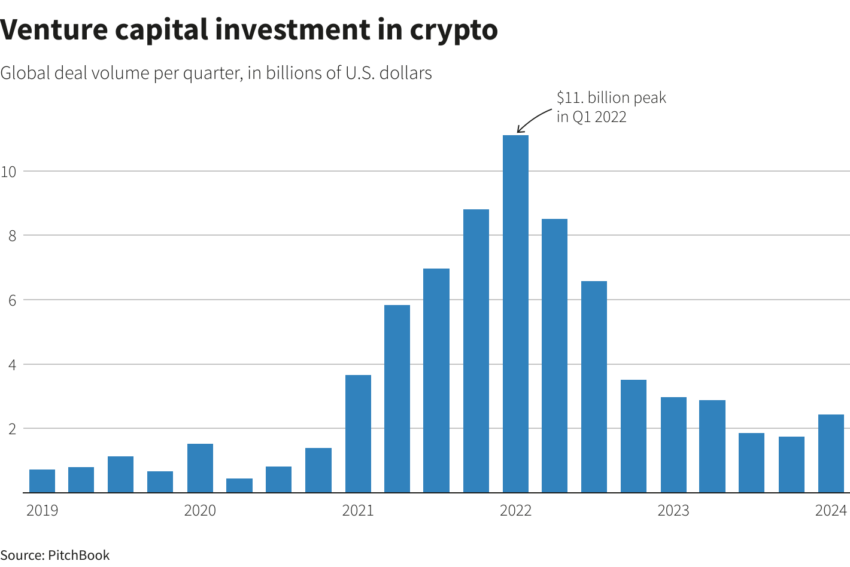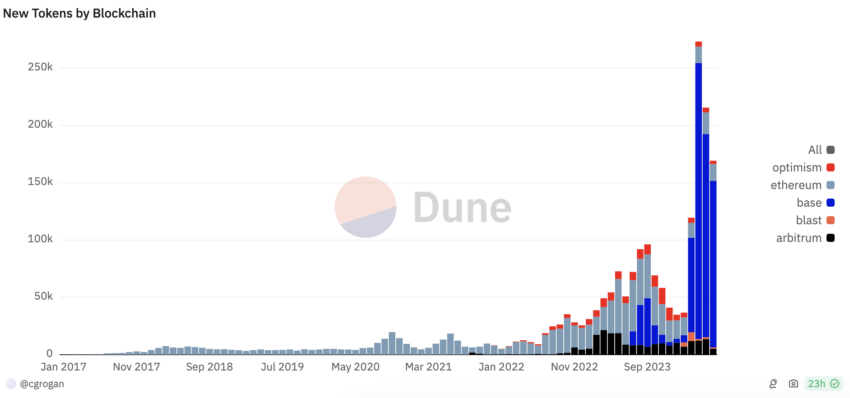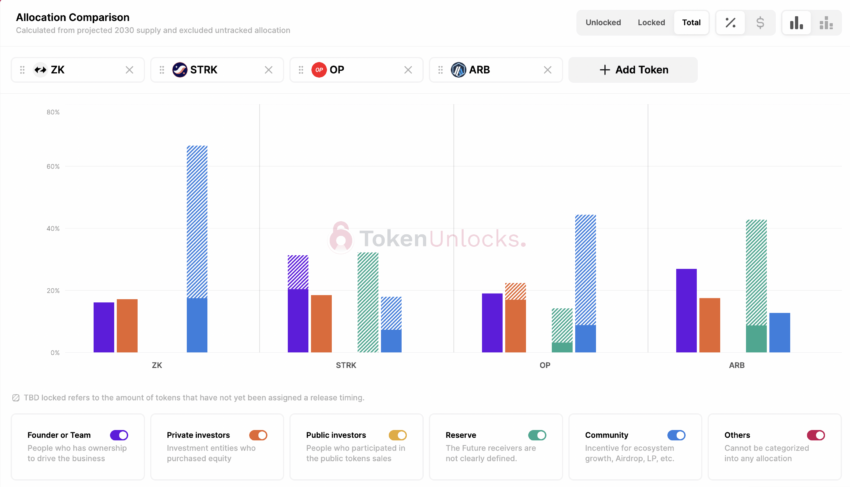A glaring issue within the cryptocurrency market is becoming evident. The proliferation of altcoins, with over 2.52 million created, is suffocating the industry.
This unprecedented growth in new tokens, while initially a sign of a booming market, now poses significant challenges.
2.52 Million New Tokens Created
Back in 2020, the crypto market experienced a frenzy. Liquidity surged as retail investors and venture capitalists (VCs) poured money into the industry. VCs, in particular, invested heavily, contributing to the development of numerous projects.
Will Clemente, the co-founder of Reflexivity Research, reflected on how the strategy was straightforward back then. Investors needed to allocate capital in high-beta altcoins and enjoy the ride as they outperformed Bitcoin.
“In 2020, you go out on the risk spectrum, those things are going to have higher beta to Bitcoin and you just get long all the vaporware and all that stuff goes up,” Clemente explained
This trend continued in 2022 when VC funding reached a record $11.1 billion in the first quarter alone. However, this flood of new capital led to an unsustainable increase in the number of altcoins.

The number of tokens tripled between 2020 and 2022, but the subsequent bear market hit hard. High-profile failures, such as the collapses of LUNA and FTX, caused widespread market turmoil. Projects that had raised substantial funds chose to delay their launches, waiting for more favorable market conditions.
By late 2023, market sentiment had improved, sparking a surge in new altcoin launches. This resurgence carried into 2024, with over a million new tokens introduced since April. Consequently, the total number of altcoins reached 2.52 million across different blockchains.
“It’s not about the number of altcoins, but their actual use cases and demand. Creating a new digital asset can take just a few minutes since most of the code is open source and a project can be easily created by copying an existing one. The crucial question is, which of these countless altcoins can attract demand and sustain investments over time? The answer is, probably 1% or even less,” Matteo Greco, Research Analyst at Fineqia, told BeInCrypto.
Read more: 7 Hot Meme Coins and Altcoins that are Trending in 2024

Although these numbers might be inflated due to the ease of creating meme coins, the sheer volume of new tokens is staggering.
How Altcoins Are Hurting Crypto
This deluge of new tokens is problematic. The more altcoins that flood the market, the greater the cumulative supply pressure.
Estimates suggest an additional $150 million to $200 million worth of new supply enters the market daily. This constant sell pressure depresses prices, akin to inflation in traditional economies. As more altcoins are created, their value relative to other currencies diminishes.
“Think of token dilution as inflation. If the government prints US dollars, this, in turn, reduces the dollar’s purchasing power relative to the cost of goods and services. It’s the exact same in crypto,” crypto analyst Miles Deutscher explained.
Many of these new tokens have low Fully Diluted Valuations (FDV) and high float, exacerbating supply pressure and dispersion. This environment would be manageable if new liquidity was entering the market.
However, with insufficient new capital, the market is left to absorb the constant influx of new tokens, leading to price suppression.
Read more: Which Are the Best Altcoins To Invest in June 2024?

This could be one of the reasons why retail investors are reluctant to engage, feeling disadvantaged compared to VCs.
In previous cycles, retail investors could achieve significant returns. Now, tokens often launch at high valuations, leaving little room for growth, and subsequently bleed as their unlock schedules commence.
“The skew towards private market is one of the biggest issues in crypto, especially compared to other markets like equities and real estate. This skew becomes an issue because retail feel like they can’t win,” Deutscher concluded.
Addressing this issue requires concerted efforts from multiple stakeholders. Exchanges could implement stricter token distribution rules, and project teams might prioritize community allocations. Additionally, higher percentages of tokens could be unlocked at launch, potentially with mechanisms to discourage dumping.
Read more: 10 Best Altcoin Exchanges In 2024
The market’s current state reflects a need for greater pragmatism. Exchanges should consider delisting defunct projects to free up liquidity. The goal should be to create a more retail-friendly environment that benefits everyone, including VCs and exchanges.
Trusted
Disclaimer
In adherence to the Trust Project guidelines, BeInCrypto is committed to unbiased, transparent reporting. This news article aims to provide accurate, timely information. However, readers are advised to verify facts independently and consult with a professional before making any decisions based on this content. Please note that our Terms and Conditions, Privacy Policy, and Disclaimers have been updated.

